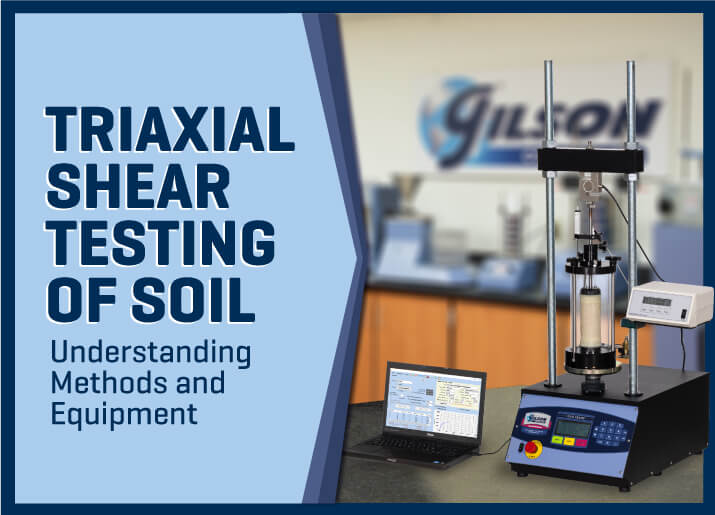
Performing regular maintenance on your Gilson Testing Screen will ensure its longevity and optimum performance. In our latest blog, we share maintenance and repair tips to maximize the service life of your device.
Have questions about your materials testing equipment? We have the answers to these questions and much more right here! Check back monthly for long-form blog posts, how-to guides and infographics. We’ll address industry insights, the operation and maintenance of specific equipment, and our product line recommendations, all designed to better serve you.
Bookmark this page, add it to your RSS reader, or subscribe to our newsletter, so you never miss a hot topic.

Performing regular maintenance on your Gilson Testing Screen will ensure its longevity and optimum performance. In our latest blog, we share maintenance and repair tips to maximize the service life of your device.
Concrete slump testing is the most common test performed on fresh concrete for any application. It is a significant factor when evaluating a concrete batch's compliance with the approved mix design and an eleventh-hour check of its suitability for placement. For this post, we focus on the slump test, how to perform it properly, and the best testing equipment to use.
Measuring the permeability of asphalt mixes is a powerful tool to predict and improve the service life of flexible pavements. In this blog post, we will discuss methods and the testing equipment needed for two basic asphalt permeability tests to mitigate pavement problems over the long term.

This month's blog discusses the triaxial shear test of soil. It focuses on three different test methods, all with variable requirements based on soil types and properties of individual specimens.
In this month's blog, we examine the civil engineering laboratory equipment needed for typical operations performed where field laboratories for construction materials testing are required. With so many possible variations in specific project requirements, we break it down by application.
In this blog, it will discuss setting up and furnishing temporary field-testing labs with essential laboratory equipment. Field labs are generally limited to a few particular tests, but no matter the material, most require the same essentials to measure properties like size, weight, and moisture.
Measuring the particle size distribution of fine-grained soils like clay and silt is best performed using the soil hydrometer test. In this blog post, we provide some guidance from sample prepping to performing the test procedure by following the ASTM D7928 standard test method.
In this blog, concrete air meter calibration will be broken down into everyday language in such a way where the practice won't be tough to carry out and won't take long either.
The Asphalt Rice Test is commonly used in determining theoretical maximum or asphalt specific gravity in accordance with ASTM and AASHTO standards. This blog post covers what you should know about the test and equipment available to help ensure testing in compliance with ASTM D2041 and AASHTO T 209.
Over the past several months, we have explored various materials testing technician certifications and what it takes to achieve them. This final summary blog in the series includes what’s new, schedules for 2018 programs and testing, and a downloadable PDF Resource List. As any additional information becomes available, we will update the blog series accordingly.